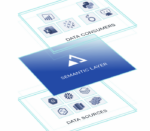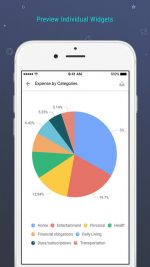While people talk about the explosion of data in the enterprise, perhaps the information that’s growing the most quickly is what the industry has decided to label “social data.”
Social data is all the non-structured Twitter tweets, Facebook posts, WordPress blog comments and more that organizations can capture and then digest to gain insight into what they’re doing right or wrong.
But a number of questions face those who collect and those who want to use social data as part of their business intelligence. Who owns the social data collected by Facebook? How is it being commoditized and reused? How much regulation should govern the sharing of this information?
(Register for This Upcoming Webinar: Five Best Practices for Designing Data-Driven Apps)
To help companies navigate those waters, something called The Big Boulder Initiative was formed to bring together those companies to face the issues. (It is called The Big Boulder Initiative because it began in Boulder, Colo., and because at its launch in June 2013, the goal was to identify the “big boulders” that needed to be moved to allow the industry to grow.) The next Big Boulder Conference will be held June 5-6 in Colorado.
Stu Shulman, founder and CEO of Texifter (a text analytics startup), is the only academic (he is an assistant professor of political science at the University of Massachusetts-Amherst) and small-business owner on the initiative’s board of directors. “We’re looking to create standards, a code of ethics and self-governance mechanisms to prevent the (social data) industry from suffering the catastrophic consequences of over-regulation,” he said.
The initiative was started by Chris Moody, former CEO of Gnip, a social data-warehousing company that recently entered into an agreement to be acquired by Twitter. Gnip was launched in 2008 and now pulls data from Facebook, Twitter, Yahoo, Tumblr, Instagram and WordPress, among others, and filters the data for its customers, who are looking for meaning out of that social data stream. To be clear, Gnip serves up raw data; it’s up to customers to build or license analytics software on top of that.
But raw data’s apparently a big business; in an article on the CNNMoney website, it was reported that “The company has been able to detect where earthquakes have occurred faster than seismic radars, glean insights on how cholera has spread through Haiti, track interesting patterns in how Iranian politicians communicate, and predict stock movements for hedge funds.” How big a business? Well, in January, the same article reported Twitter made US$23 million in the prior quarter alone by licensing its data. That’s big.
Conversely, Shulman said there are those trying to build a marketplace for people to sell their Facebook and Twitter profiles and data to the companies looking to leverage that data. “It’s totally disruptive of the publishing model,” he said.
Now, if folks could monetize their OWN data, instead of giving it to Facebook and Twitter to monetize, and decide if they DON’T want those companies to have their data, then we’d really be on to something.






